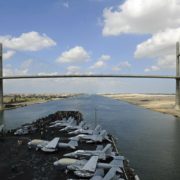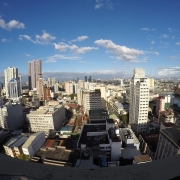What was the Six-Day War?
Topic of Study [For H1/H2 History Students]:
Paper 1: Safeguarding International Peace and Security
Section B: Essay Writing
Theme III Chapter 2: Political Effectiveness of the UN in maintaining international peace and security
Historical context
After the 1948 War of Independence and the 1956 Suez Canal Crisis, tensions between Israel and the Arab nations in the Middle East remained high. Although the United Nations Emergency Force (UNEF I) was deployed as a peacekeeping force to monitor ceasefire and prevent a resurgence of conflict at the Egypt-Israel border from the 1957 to 1967, their contributions were short-lived.
On 16 May 1967, the Egyptian government requested the withdrawal of the UNEF I from Sinai. Although UN Secretary-General U Thant offered to re-deploy the peacekeepers to the Israeli side of the border, Israel rejected the request. By 31 May 1967, most contingents have departed by air.
In the same month, Egyptian President Gamal Abdel Nasser declared the closure of the Straits of Tiran, blocking access for Israeli vessels. The military was mobilised to gather along the border with Israel, setting the stage for the war.
Fearing an Arab backlash—their UNEF contingent, accused of pro-Israeli bias, was given forty-eight hours to leave Sinai—the Canadians abandoned the convoy idea in favor of reviving the Armistice Agreement and transplanting UNEF in Israel.
“The Canadians and the Europeans will not accept responsibility,” the president recorded in his diary, “They say it’s not their trouble, and they shouldn’t get into the Middle East right now.” Particularly intimidating was Nasser’s threat to fire on any ship attempting to break the blockade, and to suspend the flow of Arab oil to its owners.
An excerpt from “Six Days of War: June 1967 and the Making of the Modern Middle East” by Michael B. Oren.
The War: Operation Focus
On 5 June 1967, the Israeli Defense Forces (IDF) launched a coordinated aerial assault on Egypt. By the end of the day, the IDF laid waste to Egypt, Jordan, Syria and Iraq. Israel had achieved air superiority over the Middle East.
On the ground, Israeli forces invaded the Sinai Peninsula and the Gaza Strip. In a few days, Israelis had forced the Egyptians to retreat. On 7 June 1967, Israel re-captured Jerusalem after putting up a fierce resistance against Jordan. Two days later, Israeli tanks and soldiers retook Golan Heights from Syria.
It was 7:10 AM on June 5, 1967. One hundred eight-three sleek Israeli fighter jets glided smoothly through the dusty morning air. They passed over Tel Aviv, Israel, heading out over the Mediterranean Sea.
[…] What happened next surprised everyone watching and, later, the world. The Israeli fighter jets swept into Egypt from the sea and bombed Egyptian military positions.
That day, and the five days later that followed, would become known as the Six-Day War.
An excerpt from “The Six-Day War (War and Conflict in the Middle East)” by Matthew Broyles.
Resolution
On 10 June 1967, the United Nations brokered a ceasefire, putting an end to the violent confrontation. Although the Israelis celebrated their triumph against their Arab neighbours, the Arab leaders signed a resolution in August (known as The Khartoum Resolutions). The Arab states were resolved not to make peace with Israel, setting the stage for the Yom Kippur War six years later.
3. The Arab Heads of State have agreed to unite their political efforts at the international and diplomatic level to eliminate the effects of the aggression and to ensure the withdrawal of the aggressive Israeli forces from the Arab lands which have been occupied since the aggression of June 5. This will be done within the framework of the main principles by which the Arab States abide, namely, no peace with Israel, no recognition of Israel, no negotiations with it, and insistence on the rights of the Palestinian people in their own country.
An excerpt from The Khartoum Resolutions, 1 September 1967.
What can we learn from this article?
Consider the following question:
– How far do you that the United Nations should not be blamed for the outbreak of the Six-Day War?
Join our JC History Tuition to learn more about the United Nations. The H2 and H1 History Tuition feature online discussion and writing practices to enhance your knowledge application skills. Get useful study notes and clarify your doubts on the subject with the tutor. You can also follow our Telegram Channel to get useful updates.
We have other JC tuition classes, such as JC Math Tuition and JC Chemistry Tuition. For Secondary Tuition, we provide Secondary English Tuition, Secondary Math tuition, Secondary Chemistry Tuition, Social Studies Tuition, Geography, History Tuition and Secondary Economics Tuition. For Primary Tuition, we have Primary English, Math and Science Tuition. Call 9658 5789 to find out more.











